Grizzly Campground Pavilion, SD 2024
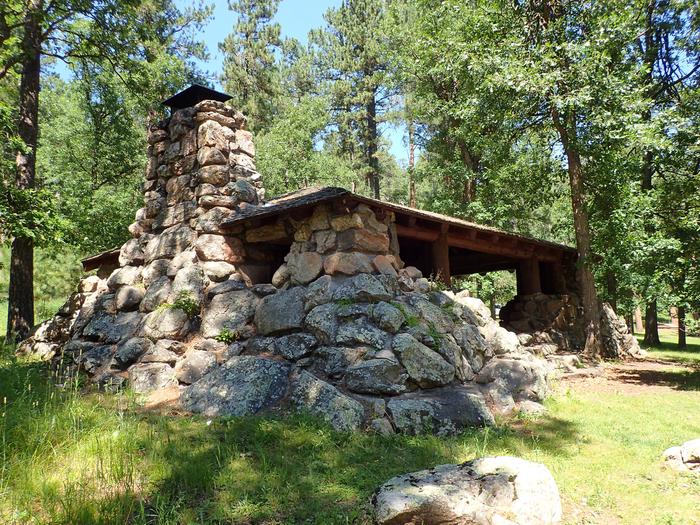
Join us in shadow of Mt. Rushmore, as HistoriCorps is revs up to restore the fabled Grizzly Campground Pavilion!
PROJECT PARTNER: Black Hill National Forest
SESSION DATES: August 25-30, September 1-6, September 22-27
PROJECT SUPERVISOR: Erin Crooks!
CREW LEADER: Ashley Aus!
Project Site Description & History
In the shadow of our nation’s most controversial memorial, HistoriCorps next project sits humbly beneath the pine forests of South Dakota’s Black Hills. The Grizzly Campground Pavilion is a unique stone and log structure built by the Civilian Conservation Corps in the 1930s and is a prime example of the primitive yet utilitarian shelters constructed in its era. Located along the scenic Iron Mountain Road, a 17-mile stretch of road winding through the Black Hills, participating volunteers will have one heck of an opportunity to mix their preservation efforts with some of the country’s most breathtaking scenery and tourist attractions.
The CCC has a touted reputation in South Dakota, with over 50 camps established statewide employing upwards of 30-thousand men, the majority being sent to the Black Hills. At Custer State Park which included 125,000 acres of pristine wilderness just south of Mt. Rushmore Memorial, the CCC constructed many recreation areas at popular sites like Horse Thief Lake, which were only possible from initial work constructing dams that allowed for various recreation lakes to be developed. With a variety of Public, private, federal, and state land managers sprawling across the Black Hills, the Black Hills National Forest oversees the majority of land share in the region.
Derived in 1897 as the Black Hills Forest Reserve, the now Black Hills National Forest was created as one of the preliminary preservation areas in the United States due to increased forest fires that lead to legislation of the Timber Culture Act and Forest Reserve Act of 1891 as safeguards to protect the natural resources of the region. Derived from the Lakota language, the words “Paha Sapa,” meaning “hills that are black,” honor the dark, pine-covered hills rising several thousand feet above the surrounding prairie. Our project at the Grizzly Creek Campground is located in the Norbeck Wildlife Preserve and is close to the Black Elk Wilderness, South Dakota’s only designated wilderness area. This area encompasses the Harney Range, an area long held sacred by American Indians.
With so much history tucked into one corner of the American West, HistoriCorps is excited to offer volunteers an opportunity to visit the Black Hills and preserve a celebrated legacy of preservation work. For more information about the history of the CCC in the Black Hills, visit The Official CCC Museum of South Dakota’s website and also take a look at South Dakota Public Broadcasting piece on the history of the CCC in South Dakota.
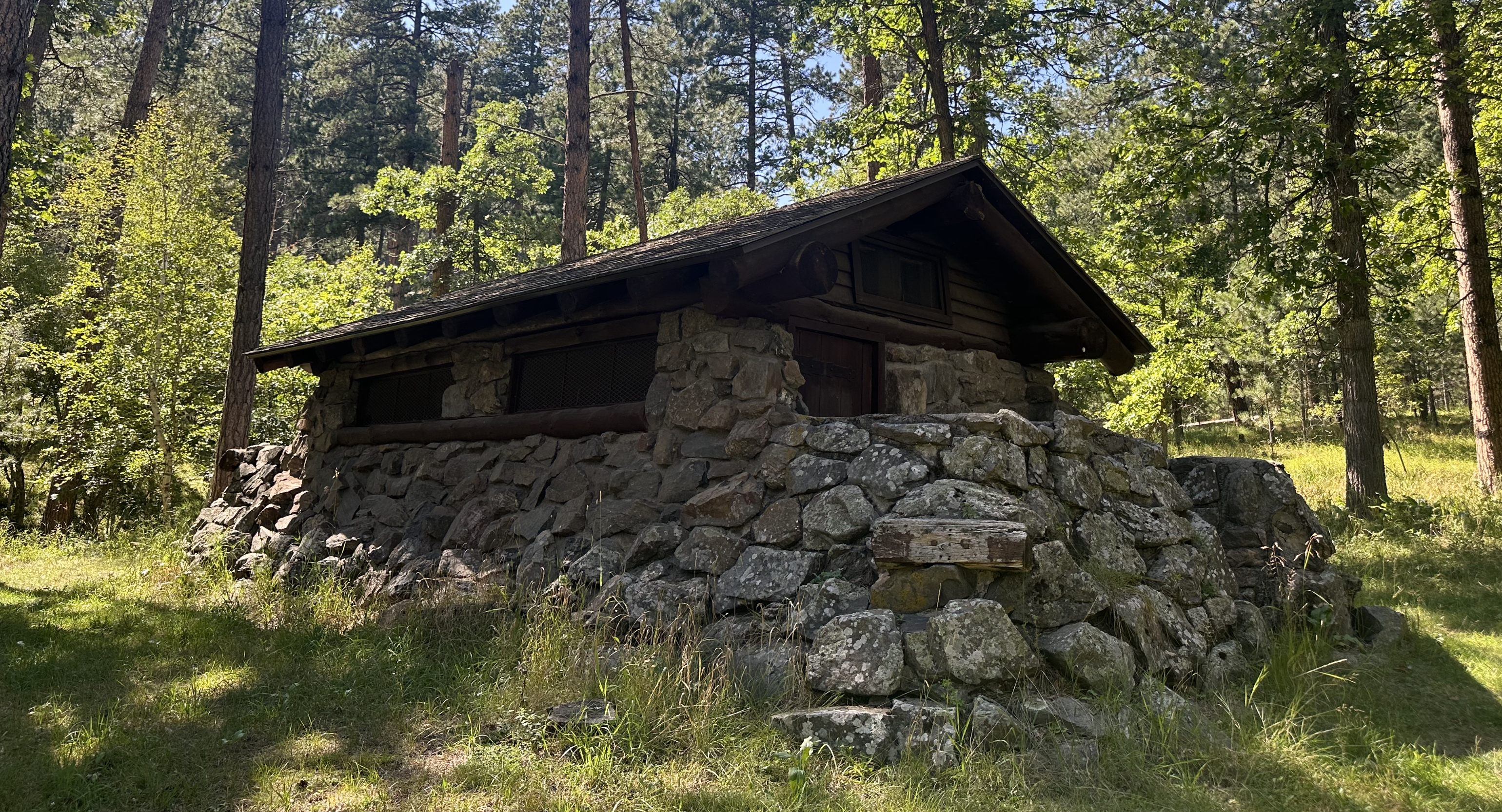
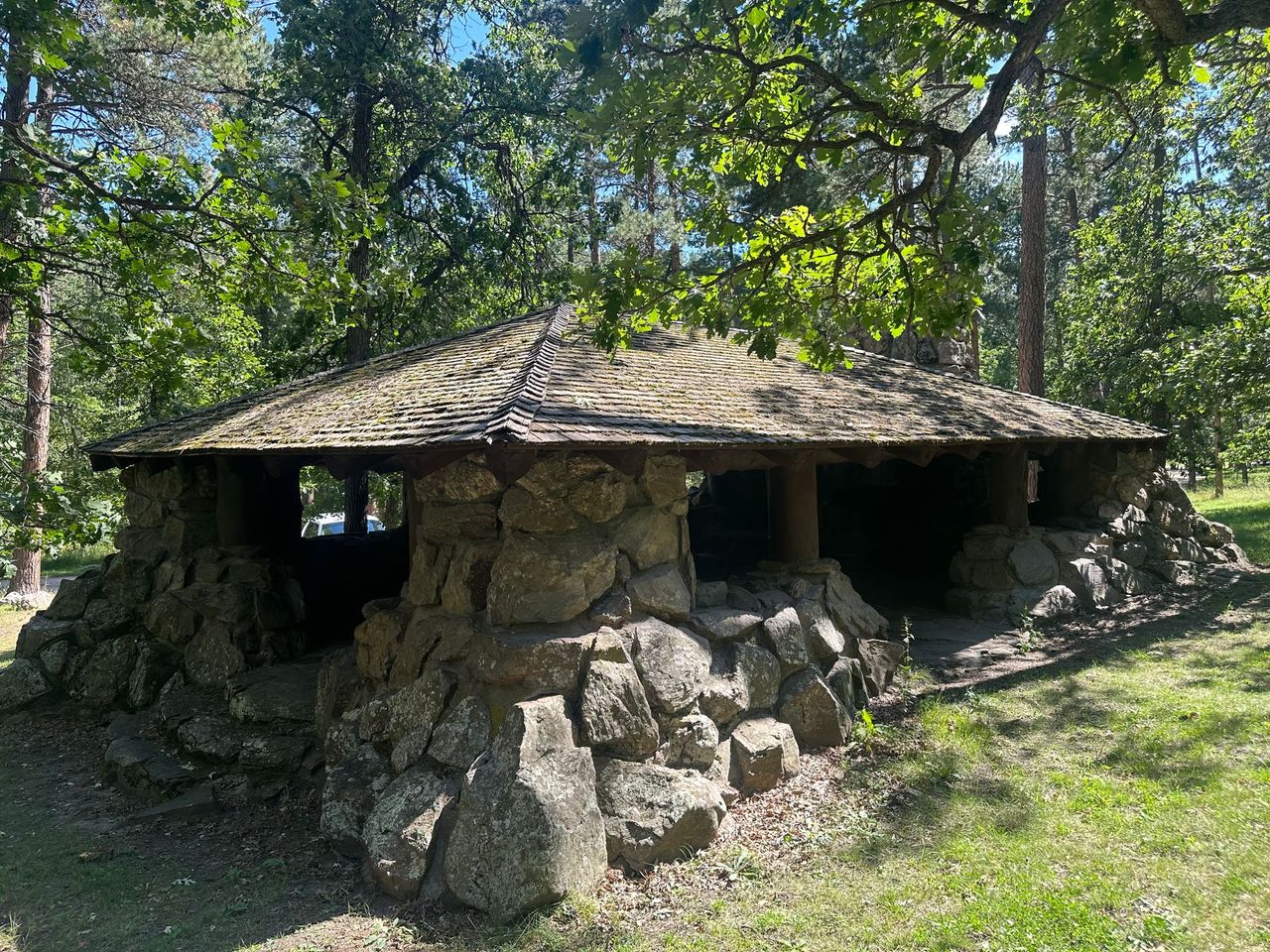
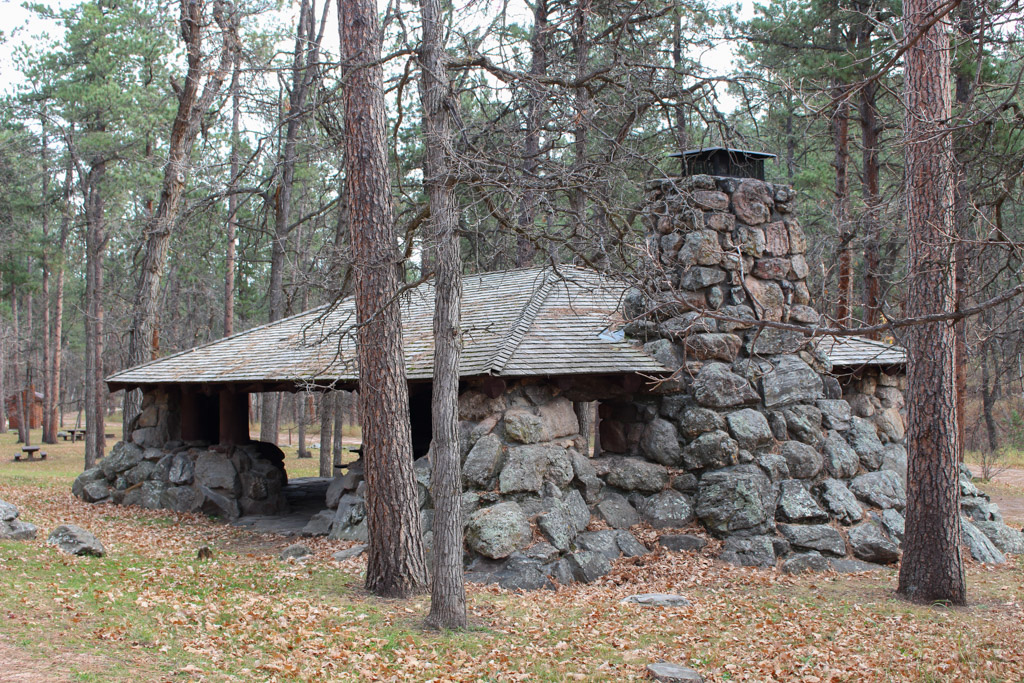
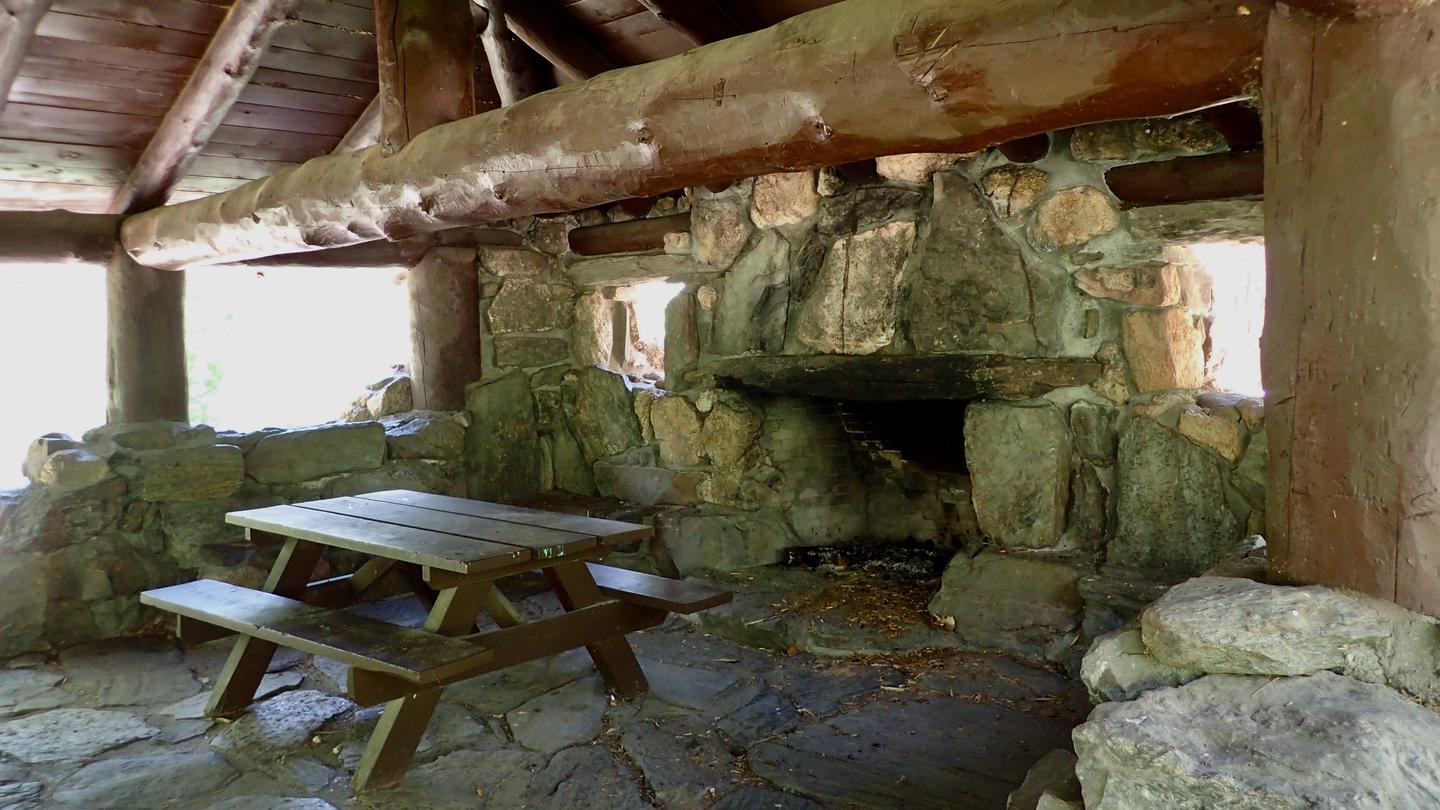
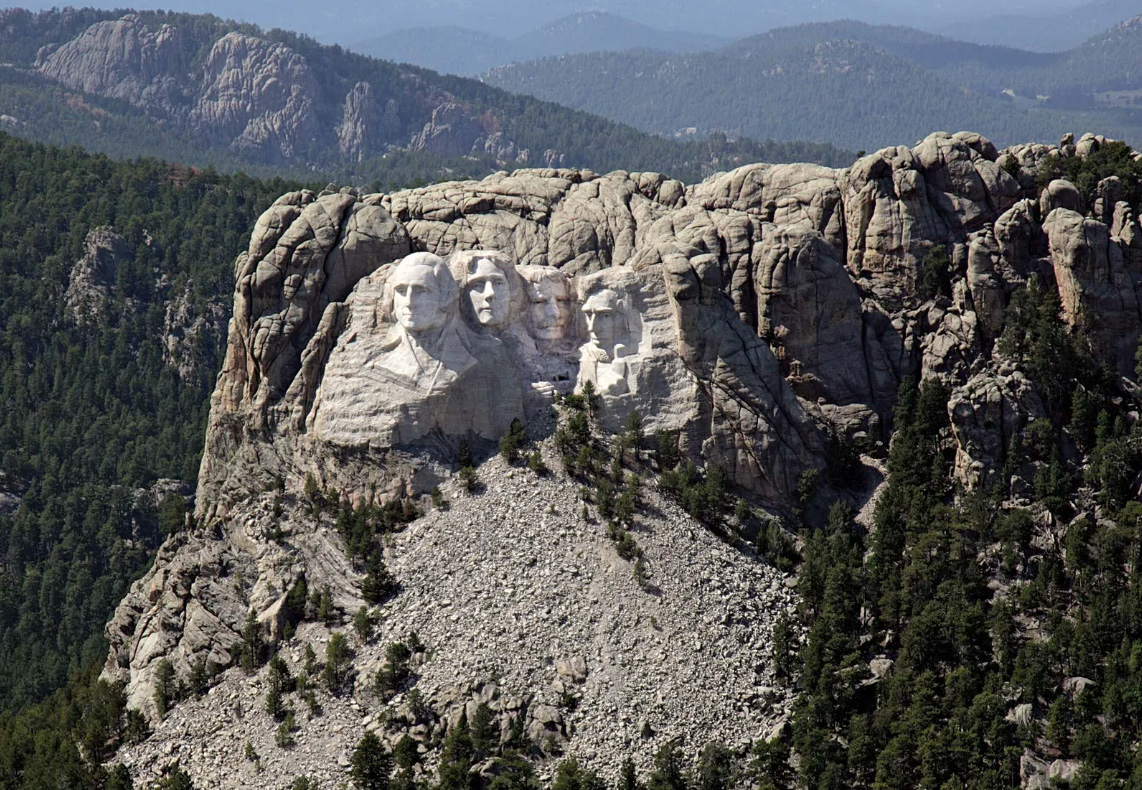
Location and Logistics
SESSION DATES: August 25-30, September 1-6, September 22-27
Please plan to arrive at the campsite no earlier than 5pm and no later than 7pm on the first day of your session.
LOCATION: Located approximately 6 minutes from Mt. Rushmore National Memorial!
ACCESS: ![]()
![]()
![]()
We’ve recently updated our accessibility: Tents and truck campers will have access to our campsite. Vault toilets and and cell-service are available. Dogs are welcome but must be leashed. According to our partners, volunteers with pet’s must pay a $2 pet fee per night if staying at our campground. *UPDATE* Showers are not available at this location.
*Due to tight, sharp turns, RVs and towing vehicles are prohibited at this campground. This includes vehicles pulling trailers and fifth-wheels, motorhomes pulling vehicles, and vehicles pulling pop-up campers.*
~Please be aware of tunnel heights along U.S. 16A~
WEATHER: Anticipate highs in the upper 80s and lows in the upper 60s. Weather conditions may be rainy, cloudy, or sunny. Volunteers are responsible for checking weather conditions before their session begins, and packing appropriately.
Scope of Work
HistoriCorps is committed to educating and training volunteers in preservation skills, with an overarching mission of inspiring a preservation ethic in all those involved. Learning and working alongside expert HistoriCorps field staff, volunteers and applying the traditional skills necessary to restore the Grizzly Campground Pavilion:
- Install cedar shingle roof
- Repair or replace rafter tails
- Stain logs and visible sheathing repairs
- Remove biological growth from exterior stonework and chimney
- Reset and repoint stone masonry walls, chimney, and flagstone floor steps
- Repair or replace damaged or cracked firebrick in fireplace
- Improve site drainage
Please note: Tasks vary by day and by week, depending on a variety of factors including: weather, project priorities, previous groups’ work, and more. Though it is likely you will get to learn and practice most or all of the above tasks, it is not guaranteed. The higher percentage of the scope a particular task is, the more likely you will get to practice it.
Sign Up!
We’re thrilled this project has inspired you to volunteer!
CLICK HERE TO REGISTER!
Visit our Job Calendar to see spaces are available!
*All registrations submitted to projects at capacity will be automatically added to our waitlist.*
CANCELLATIONS effect our ability to complete projects. Please register only if you are certain about your ability to participate.
You will know your registration was successful when you receive a confirmation email. Contact volunteer@historicorps.org for assistance.
HistoriCorps does not charge for its volunteering projects. HistoriCorps relies on donations to continue engaging volunteers to save significant historical sites across America for generations to come. Your donation of any amount will make an incredible difference! Increase your impact – make a generous gift today.
Volunteer Logistics, Policies, and Advice
We’re so glad you’re interested in joining this project! If you’re new to our community, review the Volunteer FAQ first! Please note the following logistics and policies:
- Volunteering with HistoriCorps is free! We will provide all meals, tools, training, equipment, and a campsite or shared indoor lodging. Dinner is not provided on the first night.
- Volunteers are responsible for bringing their own gear, work gloves, sturdy work clothes and boots, and appropriate sleeping equipment. Check the average temperatures before you start packing – the nights and mornings may be colder than you anticipate! Then, read this advice about how to stay warm when tent camping in colder places.
- Campsite accessibility varies by project. Some projects can accommodate tents only; others can accommodate small RVs. Please review the project site description above for more information, and if you’re still not sure, email volunteer@historicorps.org for help.
- If this project does not offer showers, you might want to consider bringing a solar shower or research other methods to clean up after the work day.
- Volunteer crew sizes generally range from 4-8 volunteers, with two HistoriCorps staff that lead and train volunteers in the work.
- Safety is one of HistoriCorps’ top priorities, and volunteers can contribute to a safe working environment by ensuring their physical fitness is adequate for the work. See above for this project’s scope of work and difficulty level. Please, call us if you are not quite sure if a project is a good fit for your skills or fitness level. We may be able to suggest a project more suitable and enjoyable for you.
- Hard hats, eye protection, ear protection, gloves are standard personal protection equipment (PPE) required on all projects. Hard hats must be worn at all times on the project site, unless working in a designated safe space. Field staff will train volunteers on correct use of PPE.
- Dogs are generally allowed to accompany their humans in project campsites (actually, we love having dogs join us around the campfire!). Dogs are not permitted on the job site for everyone's safety. HOWEVER: HistoriCorps also follows the rules and regulations of our project partner. If the project partner does not permit dogs onsite then HistoriCorps is no exception. Please ask HistoriCorps or the project partner directly if you have any questions about whether Fido is welcome.
